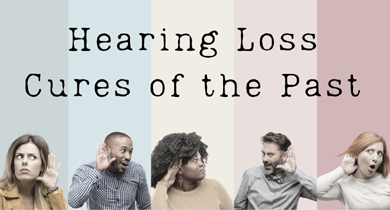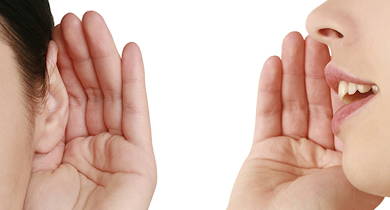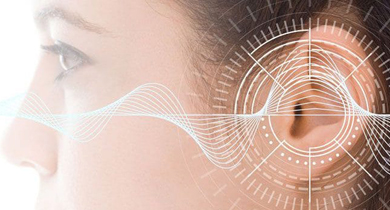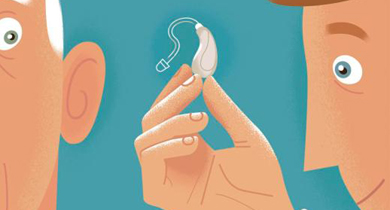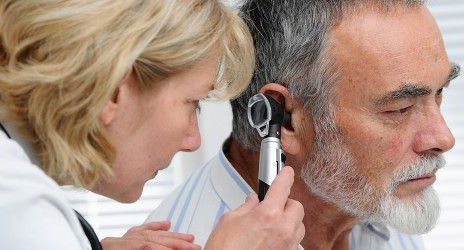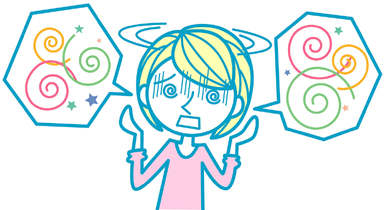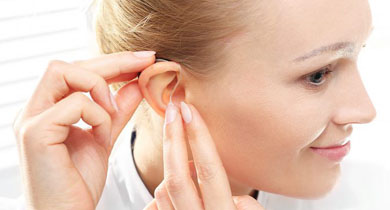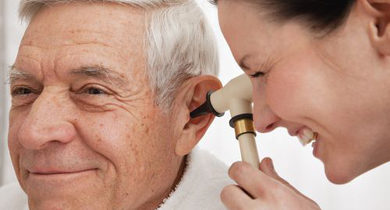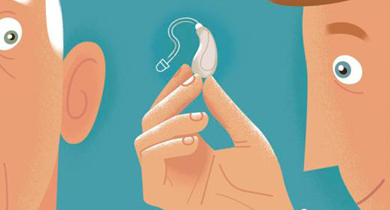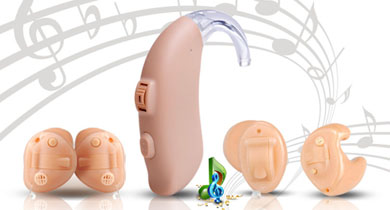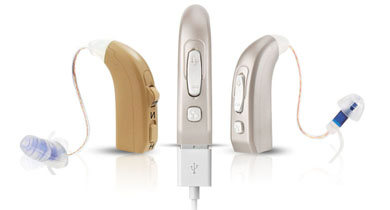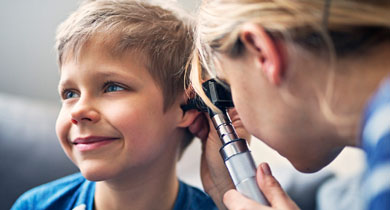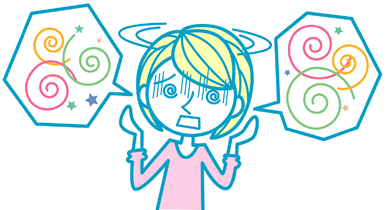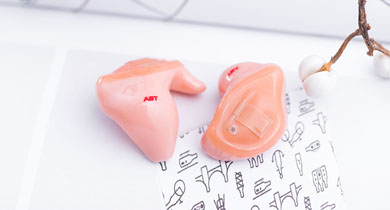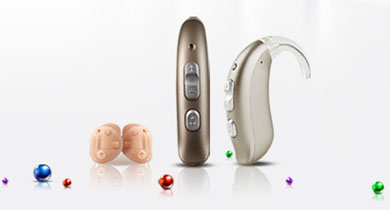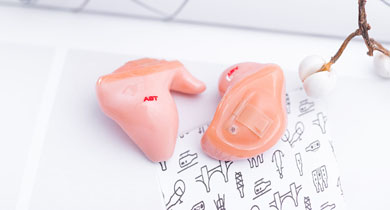
4 main causes of hearing loss
To treat and prevent hearing loss, it is also necessary to understand the factors that cause hearing loss in daily life, early detection and early treatment. There are four common causes of hearing loss, and these four must be paid attention to.

1. Ear diseases
Hearing loss may be caused by ear diseases, such as otitis externa, foreign body in the outer ear, etc. Sometimes acute and chronic middle ear problems can cause hearing loss and tinnitus. If you have ear diseases, it is best to go to a regular hospital for relevant examinations and receive treatment. Don't delay, otherwise it will develop in a bad direction.
2. Hearing loss caused by noise
Many users have nervous tinnitus, which is because the ears hear some noise for a long time, or the living environment is relatively noisy. Long-term exposure to noise will greatly reduce the function of our inner ear, so we avoid being in such an environment, we can wear earmuffs, earplugs, etc. to buffer some noise and reduce the negative impact of noise.
3. Bad living habits
How important it is to develop good living habits can keep us in a healthy state and full of vitality. For example, long-term drinking, drinking coffee, etc. Excessive intake of alcohol and caffeine will aggravate the symptoms of nervous tinnitus, resulting in hearing loss. In addition, smoking can cause blood oxygen to drop, and heavy smokers generally have symptoms of tinnitus. Therefore, if you want to get rid of tinnitus and hearing loss, you must start with developing good living habits.
4. Hearing loss caused by excessive stress
Excessive stress may lead to hearing loss. This is real. Nowadays, social pressure is increasing, which leads to decreased immunity, disordered endocrine system, and hearing loss caused by insufficient brain congestion.
This article can basically solve for you: causes of hearing loss, medical causes of hearing loss, how is hearing loss caused? What can cause hearing loss? What are the main causes of hearing loss? And so on. If you need help, please contact us.
Tip: Wearing hearing aids is one of the best ways to deal with hearing loss. Austar - A leading manufacturer and supplier of hearing aids in China.

5 Psychological Factors Related To Tinnitus
Tinnitus is not necessarily caused by an organic disease, it is also closely related to our usual emotional state. Maybe you've also experienced that tinnitus appears quietly when you're stressed or don't have a good rest. But it is not to say that tinnitus will definitely occur under stress or poor sleep. It is more appropriate to say that the psychological state may be a predisposing factor for tinnitus. Today we mainly talk about Five psychological factors related to tinnitus.
One Fatigue: When I was in the clinic, many tinnitus patients said that when they were tired (including physical and mental fatigue, such as busy work, heavy learning tasks, etc.), tinnitus would appear or worsen.

Two Pleasant: Some studies have shown that about 42% of tinnitus patients feel less tinnitus when they are in a good mood, 55.5% have no change, and 2.5% feel worse.
Three Sadness and depression: The concepts and meanings of sadness and depression are different, but they all have the characteristics of low mood, depression, and depression. Studies have shown that 30% of tinnitus patients have increased tinnitus when sad, 67% have no change, and 3% have reduced. In the depressed state, 57% of the patients worsened, 42% had no change, and 1% reduced. It is easy to see from the above data that unhealthy emotions or mental states such as sadness and depression are not conducive to the relief of tinnitus.
Four Anger and anger: Both anger and anger are negative emotional reactions. Studies have shown that in strong emotional states such as anger and anger, 40% of patients feel increased tinnitus, 51% have no change, and 9% feel less.

Five Tension and state of tension: Tension refers to emotional tension or mental tension, which is what we usually call tension. The stress state refers to the stress response produced by the body when it is suddenly and strongly stimulated. When people are in a state of tension, they may feel nervous; when they are emotionally tense, they may also cause a state of tension. Approximately 67% of tinnitus patients may have increased tinnitus due to stress, and about 33% have no change. Only a few patients feel that their tinnitus has been reduced.

In conclusion, we can initially know that among the various psychological factors affecting tinnitus, good mood and mental state can alleviate tinnitus, while bad mood and mental state may aggravate tinnitus. In the process of Tinnitus Diagnosis and treatment, doctors should pay more attention to the psychological state of patients while treating tinnitus symptoms! As an otolaryngologist, we not only pay attention to the patient's disease status, sometimes we have to play the role of a psychologist, actively and moderately guide the patient, improve the patient's adverse emotional reaction, make the patient in a relatively good psychological state, and reduce the impact of psychological factors on the tinnitus symptoms of the patient as much as possible. Here, I hope that all tinnitus patients can correctly understand tinnitus, and then actively adjust their mentality and mood and cooperate with the doctor's treatment, so that they can get rid of tinnitus as soon as possible!
If you have any questions about Tinnitus or Hearing Aids please feel free to contact us:
Austar Manufacturer: Floors 1,2,4 and 5, Building B8, Biomedical Industrial Park, No.2064 Wengjiao West Road, Haicang District, Xiamen
URL: https://www.austar-hearing.net/
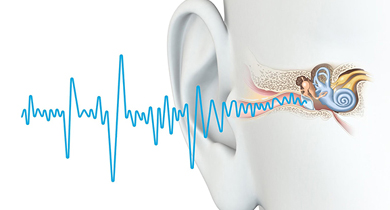
How long does it take the brain to adapt to the new sound?
In recent years, the technology of hearing aids has been developed rapidly, not only the internal technology of hearing aids, but also the programming software has become easier to adjust, which can more quickly match the individual needs of each patient. This means that hearing aids can more accurately compensate for your hearing loss.

So how long does it take our brains to adapt to new sounds? The answer is 12 weeks!
That is to say, it may take up to 3 months from the time you first wear the hearing aid to the time when your brain fully adapts and understands new sounds, especially speech.
I think this is where many people are disappointed with their hearing aids, and they expect them to "immediately" restore their lost hearing. Indeed, the hearing aid itself can achieve this goal, it just takes time!
Different people have different time to adapt hearing aids. If you've worn a hearing aid before, you can adapt to it quickly; if you're wearing a hearing aid for the first time, it takes longer to get used to it. Especially those who have a long hearing loss and have never worn a hearing aid. Taking into account these characteristics of new users, the audiologist will often give a lower volume at the beginning, which is much lower than the actual sound level required. In this way, your brain won't be impacted by a lot of sound.
As time goes on, your brain gradually accepts and understands new sounds. Then you need to go to the listening center repeatedly. Please ask your match maker to slowly increase the volume and reprogram until you get all the benefits of the new hearing aid.

Please do not feel depressed when the hearing aids don't work perfectly during few weeks when you first put them on. Just keep going, wear as much as you can, and give your brain more time to adapt to them.
If your new divice is a hearing aid with a remote control or remote control app, please try to adjust the sound and see what sounds right for you. And tell your fitter what settings you feel better.

Please challenge yourself constantly, chat more with people you know, participate more in activities you used to like, listen to various sounds, and continually train your brain so that it can accept new sounds faster.

Tinnitus
Tinnitus ("TIN-a-tus" or "Tin-EYE-tus") refers to "ringing in the ears" when no other sound is present. Tinnitus can sound like hissing, roaring, pulsing, whooshing, chirping, whistling, or clicking.
Tinnitus can occur in one ear or both ears. Below are some commonly asked questions about tinnitus.
Is tinnitus a common problem?
Yes. Almost everyone at one time or another has experienced brief periods of mild ringing or other sounds in the ear. Some people have more annoying and constant types of tinnitus. One third of all adults experience tinnitus at some time in their lives. About 10%–15% of adults have prolonged tinnitus requiring medical evaluation. The exact cause of tinnitus is often not known. One thing is certain: Tinnitus is not imaginary.
Is tinnitus a disease?
No. Just as fever or headache accompanies many different illnesses, tinnitus is a symptom common to many problems. If you have tinnitus, chances are the cause will remain a mystery.
What causes tinnitus?
Conditions that might cause tinnitus include:
- Hearing loss
- Ménière's disease
- Loud noise exposure
- Migraine headaches
- Head injury
- Drugs or medicines that are toxic to hearing
- Anemia
- Hypertension
- Stress
- Too much wax in the ear
- Certain types of tumors
- Too much coffee
- Smoking cigarettes
Why is my tinnitus worse at night?
During the day, the distractions of activities and the sounds around you make your tinnitus less noticeable. When your surroundings are quiet, your tinnitus can seem louder and more bothersome. Fatigue and stress may also make your tinnitus worse.
How is the cause of tinnitus diagnosed?
Tinnitus is a symptom of a problem. The first thing you should do is to try to find out the underlying cause. You should have a medical examination with special attention given to conditions associated with tinnitus. You should also receive a full hearing evaluation by an audiologist to see if hearing loss may be causing your tinnitus.
Should I see an audiologist?
Your hearing should be tested by an audiologist certified by ASHA to see if hearing loss is present. Since tinnitus can be associated with a number of hearing-related conditions, the hearing (audiologic) evaluation can help provide information about the cause and treatment options for you.
Can tinnitus actually be measured?
Tinnitus cannot be measured directly. The audiologist relies on information you provide in describing your tinnitus. The audiologist will ask you questions such as:
- Which ear is involved? Right … left … both?
- Is the ringing constant?
- Do you notice it more at certain times of the day or night?
- Can you describe the sound or the ringing?
- Does the sound have a pitch to it? High pitch … low pitch?
- How loud does it seem? Does it seem loud or soft?
- Does the sound change in volume or pitch over time?
- Do you notice conditions that make the tinnitus worse—such as when drinking caffeinated beverages, when taking particular medicines, or after exposure to noise?
- Does the tinnitus affect your sleep … your work … your ability to concentrate?
- How annoying is it? Extremely so or not terribly bothersome?
In discussing your answers to these questions, the audiologist can give you information that will increase your understanding of your tinnitus.
Knowing more about the cause of your tinnitus can be a great relief. When the possible cause of your tinnitus is understood, your stress level (which can make tinnitus worse) is frequently reduced. You can "take charge" by anticipating, preventing, and changing situations that make your tinnitus worse.
How is tinnitus treated?
The most effective treatment for tinnitus is to eliminate the underlying cause. Tinnitus, in some cases, can be a symptom of a treatable medical condition. Unfortunately, in many cases, the cause of tinnitus cannot be identified, or medical or surgical treatment is not an option. In these cases, the tinnitus can still be managed using a variety of other methods. Be sure to discuss with your doctor any medical treatment options before considering tinnitus management.
Tinnitus management can include:
- Biofeedback
- Hypnosis
- Electrical stimulation
- Relaxation therapy
- Counseling
- Habituation therapies
- Tinnitus maskers
- Sound machines
Audiologists and otolaryngologists (ear, nose, and throat doctors, or ENTs) routinely collaborate in identifying the cause of tinnitus and providing treatment and management. A treatment that is useful and successful for one person may not be appropriate for another.
Will a hearing aid help my tinnitus?
If you have a hearing loss, there is a good chance that a hearing aid will both relieve your tinnitus and help you hear. Your audiologist can assist with the selection, fitting, and purchase of the most appropriate hearing aids for you. Your audiologist will also help you learn how to get the best use out of your hearing aids.
What is a tinnitus masker?
Tinnitus maskers look like hearing aids and produce sounds that "mask," or cover up, the tinnitus. The masking sound acts as a distracter and is usually more tolerable than the tinnitus.
The characteristics of the tinnitus (pitch, loudness, location, etc.) that you describe for the audiologist determine what kind of masking noise might bring relief. If you have a hearing loss as well as tinnitus, the masker and the hearing aid may operate together as one instrument.
Like all other treatments for tinnitus, maskers are useful for some, but not all people. As with a hearing aid, a careful evaluation by an audiologist will help decide whether a tinnitus masker will help you.
Are there other devices that can help me?
Sound machines that provide a steady background of comforting noise can be useful at night or in a quiet environment. Fish tanks, fans, low-volume music, and indoor waterfalls can also be helpful. Today there are even applications for portable media players (iPod or MP3 players) that offer a variety of masking sounds that may reduce the annoyance of tinnitus.
Should I join a self-help group?
Tinnitus can be stressful because it can be difficult to describe, predict, and manage. Self-help groups are available in many communities for sharing information and coping strategies for living with tinnitus.
Often a self-help group promotes feelings of hope and control. Members of the group share strategies they have found successful in dealing with their tinnitus. It can help to be reassured that you do not have a rare disease or serious brain disorder or are not going deaf. With support, people with tinnitus usually find that they can cope with their tinnitus.










